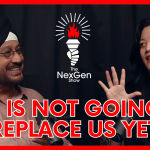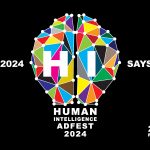By The Malketeer
Amidst the excitement of AI-driven innovations, there lies a critical concern: the risk of AI making us intellectually complacent.
As marketers, we must recognise that while AI enhances efficiency, it is human intelligence that imbues marketing efforts with meaning and resonance.
Artificial intelligence has undoubtedly reshaped the marketing terrain, offering unparalleled insights into consumer behaviour and automating routine tasks.
Machine learning algorithms sift through vast datasets to uncover patterns, enabling marketers to tailor their strategies with precision.
Automated chatbots provide instant customer support, while recommendation engines serve up content tailored to individual preferences.
These advancements streamline processes and amplify results, but they also pose a fundamental question: Where does human intelligence fit into this equation?
Danger of Diminishing Human Intuition and Creativity
The danger of relegating human intelligence in favour of AI-driven solutions is two-fold.
Firstly, there’s the risk of diminishing human creativity and intuition—the very qualities that distinguish exceptional marketing.
While AI can crunch numbers and optimise campaigns, it lacks the innate ability to empathise, innovate, and inspire.
It cannot grasp the nuances of human emotions or anticipate cultural shifts. Thus, a marketing strategy devoid of human insight risks feeling robotic and disconnected from its audience.
Threat of Intellectual Complacency
Secondly, over-reliance on AI can foster a sense of intellectual complacency among marketers.
When algorithms dictate decisions and automate tasks, there’s a temptation to relinquish critical thinking and rely solely on machine-generated insights.
Yet, true innovation arises from the fusion of human ingenuity with technological prowess.
It is the astute marketer who can harness AI as a tool, not a crutch, leveraging its capabilities to augment rather than replace human intelligence.
In this era of AI-driven marketing, nurturing human intelligence is more imperative than ever.
It is the human touch that infuses campaigns with authenticity and relevance, forging genuine connections with consumers.
While AI can analyse data and predict trends, it is human intelligence that discerns meaning from these insights, uncovering the stories that resonate with audiences on a deeper level.
Adopt a Collaborative Approach
Moreover, it is human creativity that sparks disruptive ideas and fosters brand differentiation in a crowded marketplace.
So, how can marketers ensure that human intelligence remains at the forefront of their endeavours in the age of AI?
Marketers must prioritise continuous learning and skill development.
Embracing AI entails upskilling in data analysis, algorithmic understanding, and technological fluency.
However, it is equally essential to cultivate soft skills such as critical thinking, empathy, and creativity—attributes that defy automation and are intrinsic to effective marketing.
Secondly, marketers must adopt a collaborative approach that integrates AI seamlessly into their workflows.
Rather than viewing AI as a threat to job security, they should embrace it as a partner in innovation.
Ensuring Primacy of Human Intelligence
By leveraging AI to automate mundane tasks and glean actionable insights, marketers can devote more time to strategic thinking and creative ideation—areas where human intelligence excels.
While AI continues to redefine the marketing landscape, it is imperative to safeguard the primacy of human intelligence.
In an era of unprecedented technological advancement, it is not enough to rely solely on algorithms and automation.
The true essence of marketing lies in the fusion of human creativity, intuition, and empathy with the analytical prowess of AI.
By embracing this synergy, marketers can unlock the full potential of AI while ensuring that their strategies resonate authentically with their audiences.
MARKETING Magazine is not responsible for the content of external sites.











